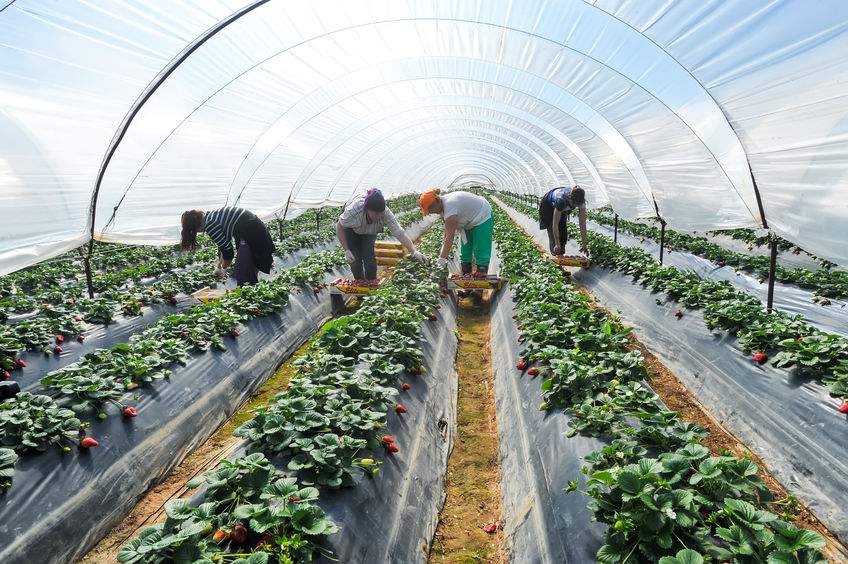
There are high levels of concerns in the farming industry that the lack of low-skilled migrant labour will lead to "devastating impacts" on the ability to operate and sustain business.
The Migration Advisory Committee (MAC) has issued out an update on EU workers in the UK labour market, summarising the responses from employers, including many farm businesses.
Many employers expressed the view that, without employing migrants, they would not be able to address the skill shortages they are currently facing, at least in the short-run.
There has been evidence from focus groups revealing high levels of concern among firms in the agricultural industry which rely on low-skilled labour from the EU.
The British Chambers of Commerce responded to the MAC call for evidence. It said agricultural firms "believed that any future restrictions would lead to increased skills shortages and unfilled vacancies, which in turn would have devastating impacts on their ability to operate and sustain the businesses."
“Firms are concerned about their area’s ability to meet the demand for skills if access to EEA workers were to be restricted.”
Several horticultural employers indicated that unemployment was as low as one or two per cent in their area.
Lincolnshire-based business Manor Fresh told the MAC: “Unemployment locally is very low, 3.7 per cent compared to 4.7 per cent nationally, only 419 people in an area that covers 290 square miles are actively looking for work.”
UK workers
Some rural businesses report that some jobs in their sector offered difficult working conditions and that this limited the appeal of these jobs to UK workers.
Produce supplier Fresca Group Ltd told the MAC: “People simply would sooner work in a coffee shop than work in an agricultural field.”
Several sectors argued that they have an image problem that makes it hard to recruit UK workers as these workers do not want to do what are seen as undesirable jobs.
A range of employers including horticulture, dairy, fishing and food and drinks manufacturers, indicated that UK workers did not want to work in what were described as difficult or unpleasant environments, such as on farms or in factories.
The British Meat Association said: “The work does not have high social cachet – for reasons of food safety the sites are kept cold, workers wear a significant amount of food and personal safety equipment, the work is physical and it is shift work.
“So, when there is availability in the local workforce we tend to lose out to other industries.”
Rise in costs
A recent Brexit scenario analysis conducted by the AHDB demonstrated that unless specific policy measures are implemented to address the shortfall in migrant labour, its short supply will add a major cost to farms.
The National Pig Association told the MAC: “It should be stated that if the availability of labour is curtailed, employers will be competing more for staff, thus leading to higher wages, and an increase to the cost of production.
“This would lead to a rise in the cost of pork, making British pork uncompetitive compared to foreign imports, leading to the inevitable loss of businesses and the requirement to import more pork from the EU.”
G’s, a large salad and vegetable company said: “Prices for salad and vegetables hadlower rate of inflation than other goods in recent years.
“Disruption to supply or skill level of seasonal labour will have immediate consequences for the average consumer's shopping basket.”
